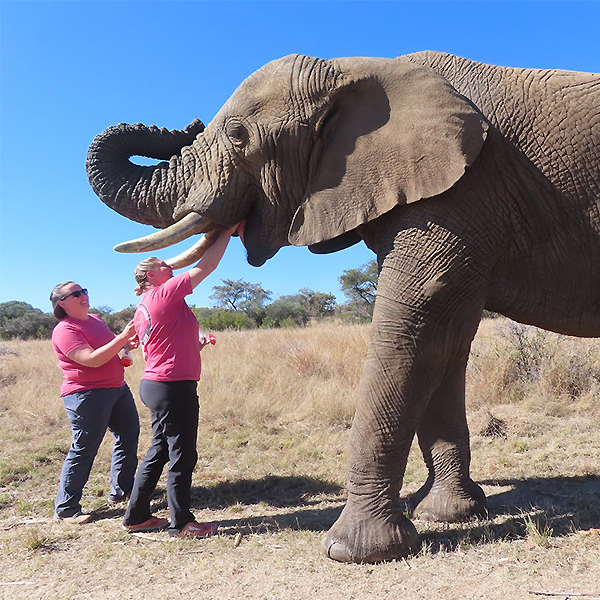
From Texas to South Africa, this Animal Welfare and Behavior expert says the terrain may be similar to West Texas, but the critters are definitely different.
Nichole Anderson lives and breathes for helping the welfare of animals through researching animal behavior. Her passion is to ensure animals receive the best care and treatment possible.
Anderson is an assistant professor of behavior and welfare at the Texas Tech University's School of Veterinary Medicine, where her focus is to improve animal welfare for working animals used on farms and ranches. Nothing excites her more than teaching graduate and veterinary students all aspects of animal behavior and welfare and how they relate to veterinary medicine.
“Animals deserve the best treatment possible,” Anderson said. “It is so crucial for
students to learn proper animal housing, management, nutrition, disease prevention
and treatment, responsible care, humane handling and so many other things.” 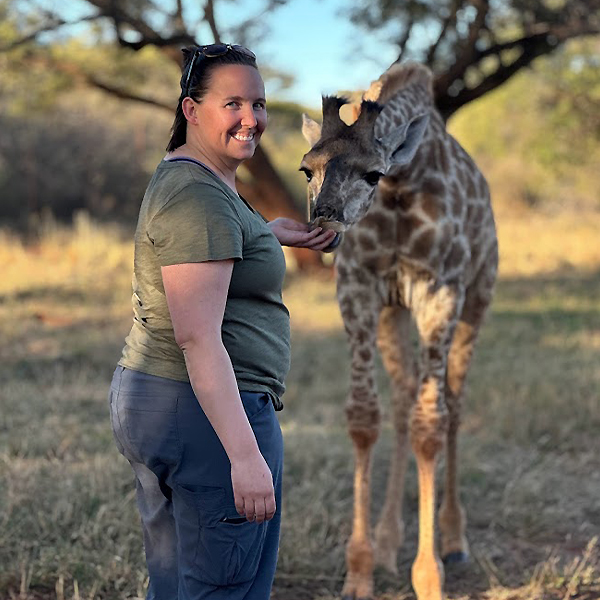
This summer, Anderson brought her expertise of animal behavior in veterinary medicine on a study abroad trip with Texas Tech's Department of Animal and Food Sciences. Anderson and her One Health Ph.D. student, Bethany Baxley, joined assistant professor of companion animal sciences, Anastasia Stellato, along with three other graduate students and nine undergraduate students on a two-week trip to South Africa.
“When I was approached to see if I was interested in this trip, I didn't even blink an eye,” Anderson said. “This was a trip for me to build relationships and see if this is something we might want to bring back to our veterinary students in the future.
“I came into this trip with a mindset of curiosity. Working with cattle and horses
is one thing, but when it comes to working with exotic animals such as lions, leopards
and elephants, it's a whole new ballgame.” 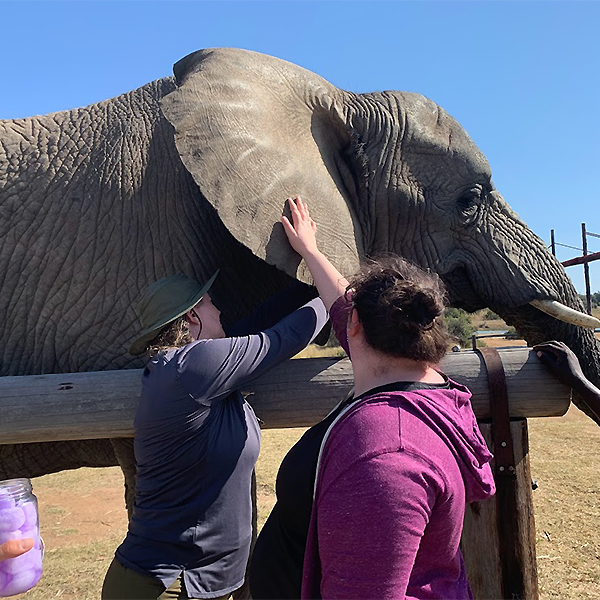
Anderson and Stellato were able to give students an experiential learning opportunity for behavior research. Through visiting several animal management sites that housed exotic animals, students were taught about the welfare of these animals.
“Seeing and working with these types of animals allows a student to get out of their comfort zone,” Anderson said. “For instance, this opportunity allows a student to think critically about what a lion needs when they aren't as familiar with lions, but in all reality, their needs are very similar to other animals. This really helps a student learn how to bridge that knowledge between different species.”
Students were also able to work with Adventure with Elephants, which is a place that has one of the largest private elephant herds in South Africa. Students met and worked with Andrea Bouwer, a professional animal trainer. They helped train elephants to be prepared and comfortable with minor medical procedures that are important for monitoring animal health. From this experience, they learned how they would train other animals for cooperative care in the future.
They were able to work with a local exotic veterinarian, Dr. Andy Fraser, to tie in
the veterinary medicine aspect of behavior and welfare. Then, they visited a rhinoceros
conservatory to learn in-depth what it means to protect rhinos. Students also were
able to observe, perform research and see first-hand how to work with leopards, cheetahs,
lions, monkeys, and even hyenas. 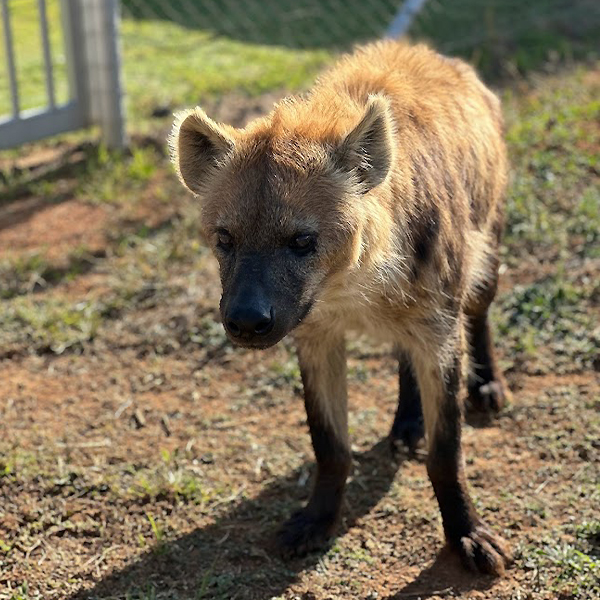
“Dr. Anderson and I got to perform an enrichment test on a hyena by giving it a task so that we can understand it's natural behaviors,” said Bethany Baxley. “So, we walked around the enclosure spreading beef broth. Then we released the hyena to see how it would pick up on the scent, where it would go and how it would react once it found the scent.”
Baxley is part of the School of Veterinary Medicine's One Health doctorate degree program, and she is pursuing her doctorate degree in animal welfare behavior. Her passion is to work specifically with equine assisted services, which are horses that assist in therapeutic riding or physical therapy.
“Getting to gain experience in my field and applying it to a different type of species
was incredible,” Baxley said. “I was able to learn a lot, but at the same time, I
was able to do what I love which was getting out of the classroom and working with
animals.” 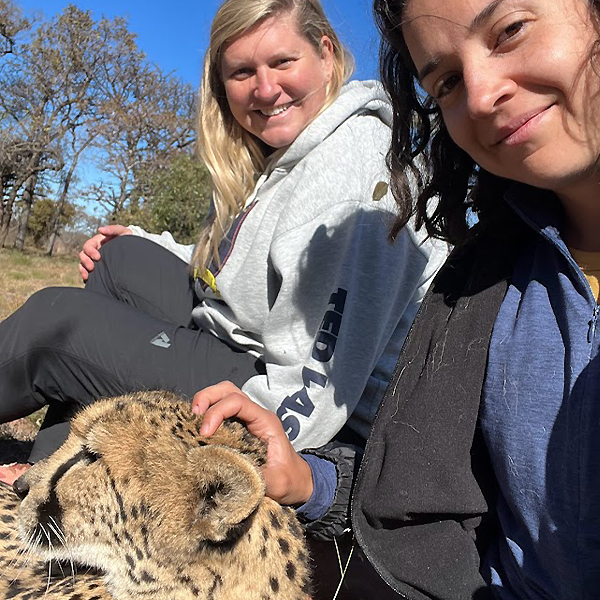
Anderson, Stellato, Baxley, and the other students were able to work hand-in-hand with animal managers to suggest tips and protocols that would better help the animals. At some sites they visited, they were able to help implement enrichment protocols, write training protocols, taught individuals clicker training, and other training methods that sometimes managers either aren't aware of or maybe don't have the time or resources to perform.
Performing research in a foreign country, with little knowledge of the land and animals,
can create its challenges. These students were able to learn how to adapt and think
quickly in various scenarios. 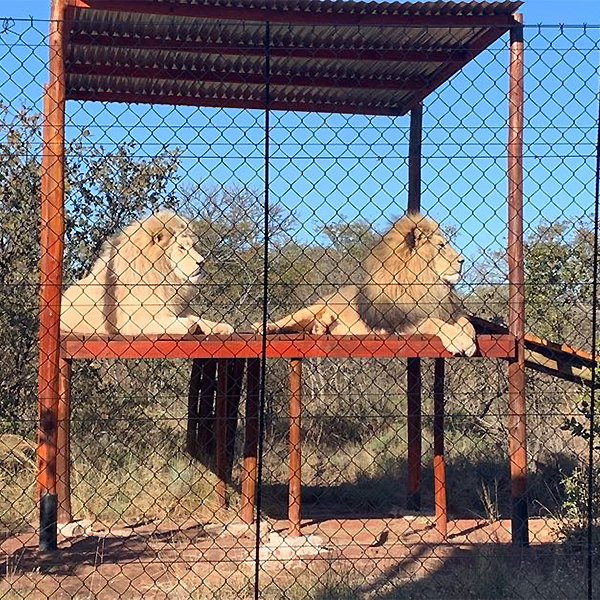
“One of the neat things I got to see Dr. Anderson and Stellato do was work on the fly when maybe their initial research plan didn't go according to plan,” Baxley said. “I feel like if I were in that situation, I would have frozen and been like, ‘It's all over.' However, that wasn't the case. They taught us how to be flexible and ask questions like, ‘What's my hypothesis?' and ‘How to implement that?' when things change.”
This trip was much more than just learning about animal welfare and behavior. It was
a trip to also learn about a new culture. They were able to truly see the South African
way of life by interacting with people, eating various foods, enjoying local activities
and, of course, seeing all the different ways of animal management. 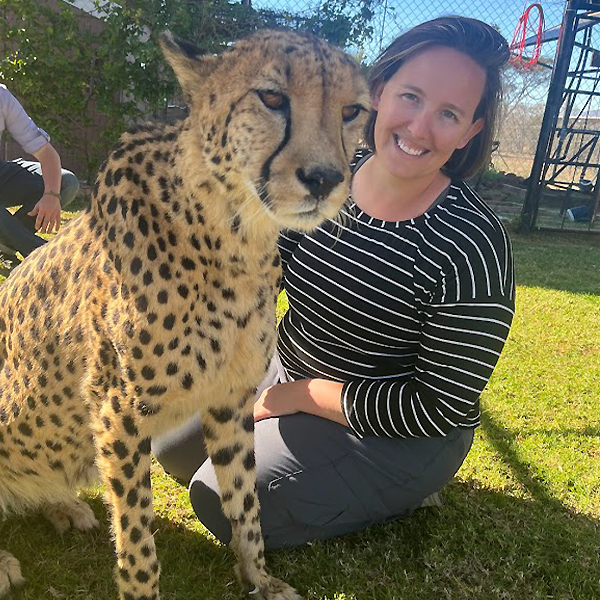
“One of the reasons I chose to become an animal welfare and behaviorist is because I love being hands-on working with the animals,” said Anderson. “So, getting two weeks uninterrupted, where you get to explore culture, mentor students, form friendships, and have those organic teaching moments about what this means for a student's future career is so rewarding and valuable to me.”
